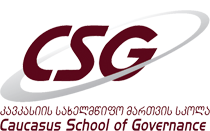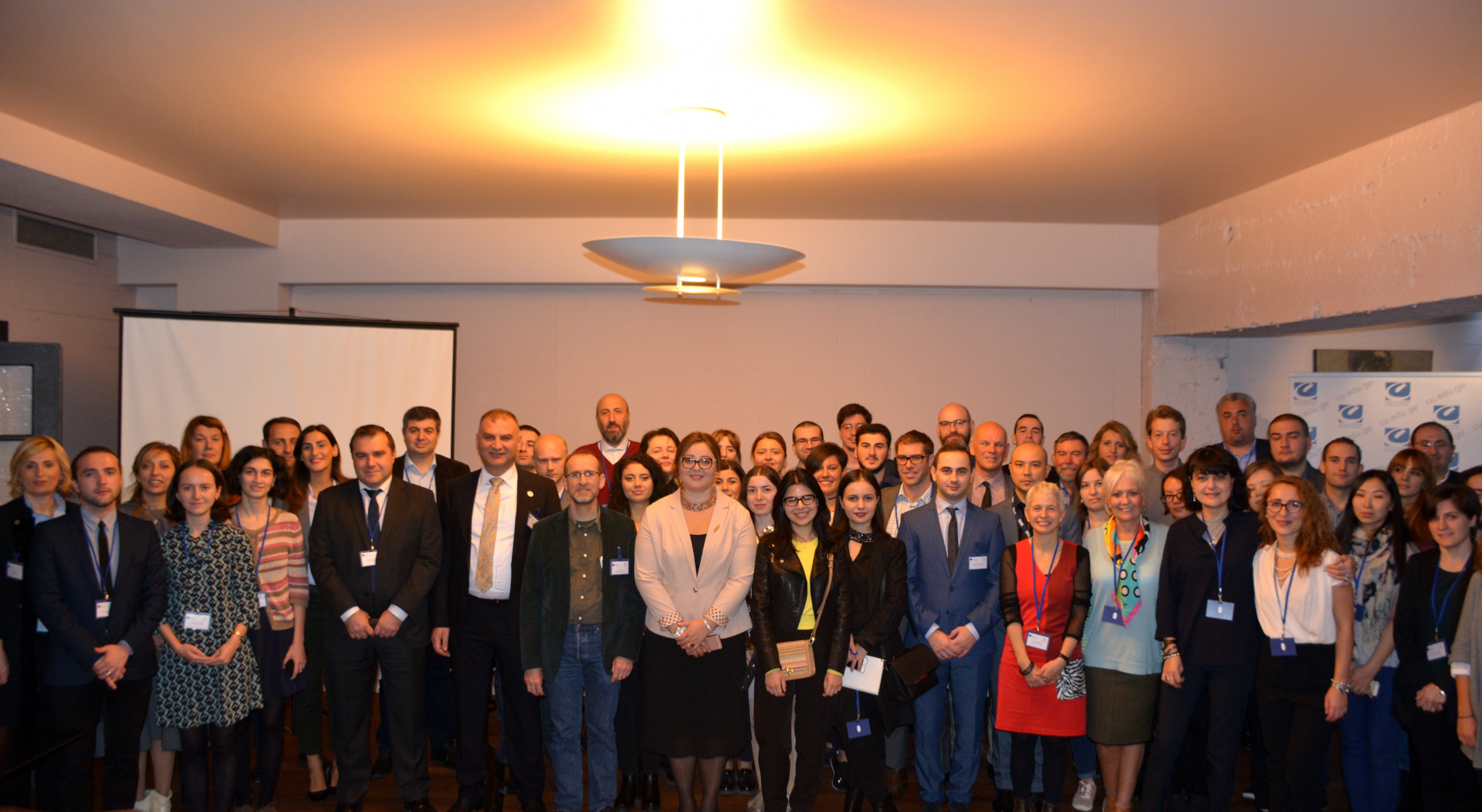On October 6, 2017 Tbilisi International Peace Conference (TIPC) was held at Hotel Rooms Tbilisi. The aim of the conference was to facilitate the development of peace and conflict scientific discipline in Georgia and facilitate integration of Georgian scientists in the global epistemic community of peace and conflict researchers.
Representatives of Georgian and Foreign Academia as well as peace and conflict researchers from world’s leading Universities presented at the Conference. The event will become an annual gathering, aiming to promote the formation of local academic agenda on peace and conflict issues.
Dr. Kakha Shengelia, President of the Caucasus University delivered a welcoming address to around 100 Conference participants. He spoke about the newly established Institute of Peace Studies, its future educational and research plans. He underlined the importance of the collaboration among four Georgian Universities in the Erasmus + funded project “Creation of the Graduate Curricula in Peace Studies in Georgia – PESTUGE” and the importance of the development of peace and conflict discipline.
Invited guests, Mr. Petre Kankava, 1st deputy State Minister for Reconciliation and Civic Equality as well
H.E. Ambassador Niels Scott, UN Resident Coordinator/UNDP Resident Representative in Georgia addressed the gathered audience. Guests praised and expressed unwavering support to the PESTUGE goals, already achieved outcomes and future plans.
As part of the Conference, a key note lecture on “The History of Peace Studies as an Academic Discipline” was delivered by Prof. DDr. Wolfgang Dietrich, Head of the Unit for Peace and Conflict Studies at the School of Social and Political Sciences, UNESCO Chair holder for Peace Studies, the University of Innsbruck
The Conference consisted of five working panels: Comparative Peace Processes and Peace Building Practices; International and local conflicts: sources of instability and tools for Conflict Transformation; Peace Variables: Mediation, Reconciliation, Gender; Identity, memory and peace narratives in conflict transformation; “Youth and Peacebuilding.”


